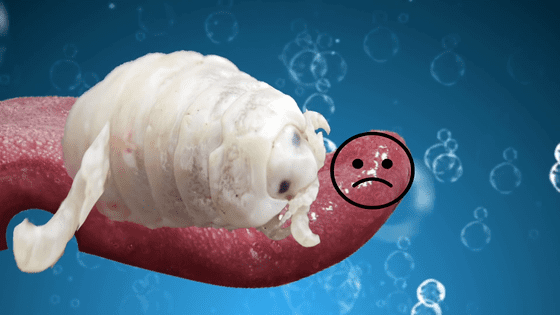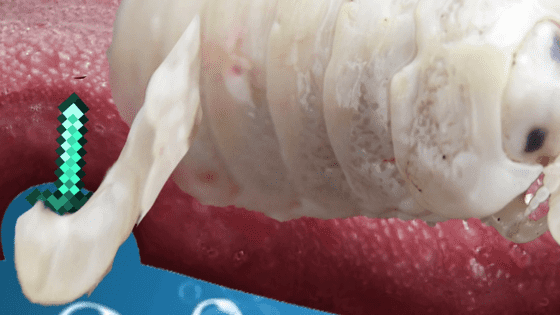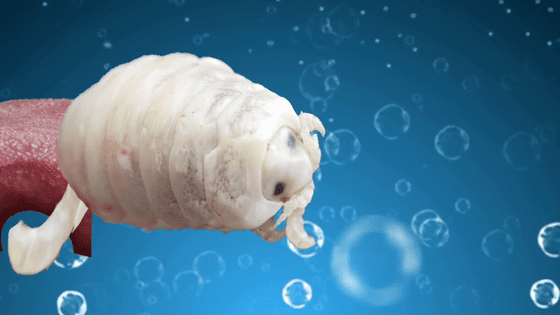What is the ecology of the parasite 'Uonoe' that replaces the tongue of fish?

Various types of parasites that parasitize host animals and obtain nutrition have been confirmed
The Most Horrifying Invasive Parasite - YouTube
There is a saying, ``cat got your tongue (cat took your tongue: why are you silent?)'', but this is just an expression; a cat never really takes your tongue.

Humans can probably live a normal life even if they lose their tongues, but for a moment, imagine for a moment that a cat took your tongue, and then the cat took the place of your tongue.

If you're a fish living in

Cymotoa exigua, a representative species of the family Uonoeidae, also known as 'the tongue-eating louse,' begins life as a small male measuring just a few millimeters.

Cymotoa exigua is a small parasite that enters the mouth of host fish en masse through its gills. They then live in their gills until they are fully mature.

Cymotoa exigua grows inside the gills and changes sex into a female who eats the tongue.

It takes a long time for female Cymotoa exigua to lay eggs. First, the female Cymotoa exigua moves from the host's gills into the mouth. Then, it firmly pierces the base of the host's tongue with its powerful hind legs and sucks blood.

Cymotoa exigua continues to inject substances, including anticoagulants, to keep the wound from closing. Perhaps the fish will continue to feel the same itch that humans experience from mosquito bites. The fish's tongue will eventually lose blood and fall off.

However, despite being called a tongue eater, Cymotoa exigua never leaves the mouth. Because Cymothoa exigua eats not only its tongue, but also its prey.

Cymotoa exigua is attached to the base of the fish's tongue, so the fish moves it like a real tongue, and Cymothoa exigua uses that movement to eat leftover food.

Although it then spends the rest of its life as a fish tongue, Cymotoa exigua usually dies before its host fish. Fish that lose their tongues have difficulty eating food, so they quickly starve to death.

If you are human, there is no need to worry about Cymotoa exigua. Cymotoa exigua does not target humans. In the worst case scenario, if you put your finger into the mouth of a fish that is infested with Cymothoa exigua, you might get bitten by Cymotoa exigua, but the fish will bite you first.

Related Posts:
in Free Member, Video, Creature, Posted by log1p_kr







